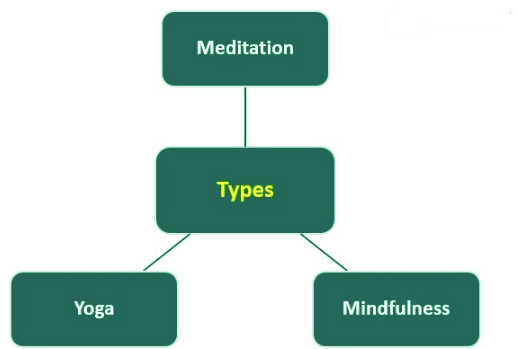Exploring the Significance and Application of Indigenous Therapies | Psychology for UPSC Optional (Notes) PDF Download
Introduction
In today's rapidly evolving world, where constant change and development prevail, ensuring personal safety and well-being becomes a paramount concern. While the modern consumer-oriented lifestyle offers numerous benefits, individuals need effective ways to protect themselves, especially in potentially unsafe situations. Beyond the common understanding of psychology as mere "life advice," this field delves into the intricacies of personality, human behavior, emotions, social interaction, communication skills, criminology, relationship dynamics, and more. However, amidst the dominance of Western psychology, an alternative perspective called Indigenous Psychology has emerged, shedding light on the influence of language, culture, and tradition on human cognition and behavior.
What is Indigenous Psychology?
- Wilhelm Wundt is widely recognized as the "father of modern psychology," according to Boring (1950). In 1879, he established a psychological laboratory at Leipzig University, which played a pivotal role in establishing psychology as an independent and experimental science. Wundt's primary focus was on studying the workings of the human mind through systematic experiments, particularly investigating the nature of human awareness.
- However, Wundt acknowledged the limitations of the experimental approach. He believed that while it was suitable for studying basic sensory processes, it was not well-suited for exploring psychological issues influenced by language and culture (Danziger, 1979). Wundt recognized that factors such as language, tradition, and mythology significantly shape our thinking processes. This led him to develop Volkerpsychologie, also known as cultural psychology or ethnopsychology (Danziger, 1979). In his later years, Wundt dedicated himself to researching the societal influences on human development, publishing ten volumes of Volkerpsychologie between 1910 and 1920. He viewed psychology as belonging to the tradition of Geisteswissenschaften (culture science) rather than Naturwissenschaften (natural science).
- While contemporary psychology aligns with the tradition of natural science and emphasizes experimental methodology, Wundt's insights into the limitations of the experimental method and the importance of cultural factors suggest that he should not be solely regarded as the "founder of contemporary psychology" (Danziger, 1979; Koch & Leary, 1985).
- The concept of Indigenous psychology embodies the cultural science heritage influenced by Wundt. In contrast, contemporary psychology prioritizes the scientific sciences' legacy over the social sciences' history (Danziger, 1979; Koch & Leary, 1985). Indigenous psychology is often defined as the scientific study of human behavior and the mind that is native to a particular culture and developed for its people (Kim & Berry, 1993). It represents a form of resilient psychology that seeks to restore the biophilic force of Indigenous peoples and their lands. This involves theorizing and resisting the psycho-politics of neo-colonial oppression and control, drawing inspiration from the work of Indigenous psychology pioneer Franz Fanon and challenging the disabling "double consciousness" experienced by the colonized (Kim & Berry, 1993).
Types of Indigenous Therapies
1. Meditation
In its most fundamental sense, meditation refers to the daily practice of cultivating and nurturing positive emotions in one's life. In the past decade, numerous studies have been conducted to explore the effects of meditation on the human body. Meditation has often been compared to sports, suggesting that regular practice can enhance one's ability to engage in meditation effectively. Research findings have consistently shown that meditation has significant impacts on the human body, particularly on the brain, as evidenced by positive results from functional magnetic resonance imaging (fMRI) and electroencephalography (EEG) studies. References to meditation can be found in various religious and cultural texts, particularly in contexts where a monastic way of life is prevalent. However, in contemporary times, meditation is no longer limited to monastic practices but has become a vital component of many mindfulness programs in Western cultures.

2. Mindfulness
Based on the indigenous concept of mindfulness, referred to as pali sat and Sanskrit smriti, various approaches have emerged. Mindfulness can be defined as the practice of intentionally directing one's complete and non-judgmental attention to the present moment. The essential requirement for cultivating mindfulness is the ability to regulate one's attention. This involves being able to consciously and skillfully observe mental processes as they arise. The second essential aspect of mindfulness is maintaining an attitude of curiosity, acceptance, and openness. Individuals must cultivate a receptive state of mind that allows them to embrace and acknowledge the present reality.
3. Yoga
In modern society, yoga is commonly perceived as a form of physical exercise. However, in accordance with its traditions and historical context, this holistic practice encompasses various physical postures, exercises, as well as breath control and mindfulness techniques. Moreover, yoga and its postures have a significant psychological aspect. According to historical records, the original purpose of yoga was to facilitate the development of spiritual awareness and mindfulness. Indigenous cultures engaged in this practice to attain optimal psychophysiological well-being and physical performance. Research has consistently shown that regular practice of yoga has numerous psychological benefits, including stress reduction, emotional regulation, mood elevation, and overall improvement in mental well-being.
Conclusion
Indigenous psychology is gaining recognition and relevance alongside Western psychology. Therapeutic practices rooted in indigenous traditions, such as yoga and meditation, hold significant value for individuals worldwide, despite not receiving the same level of attention as Western therapies. The utilization of yoga therapy by psychologists to address psychological concerns is growing in popularity, highlighting its importance in the field of mental health.
|
160 videos|215 docs
|





















